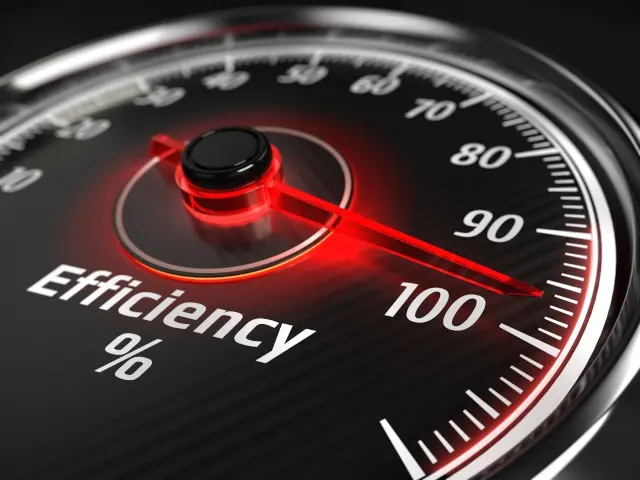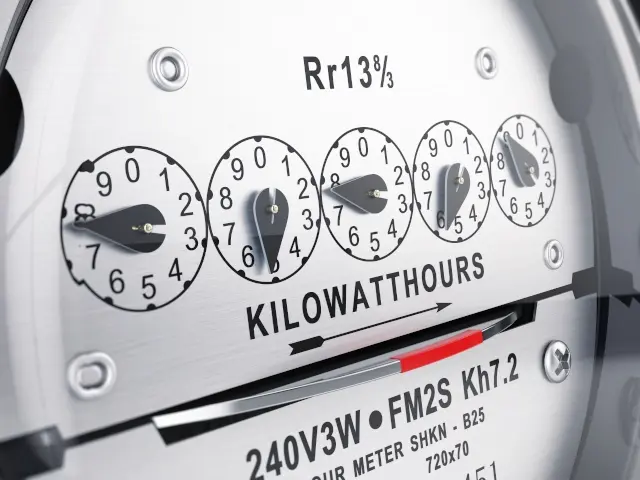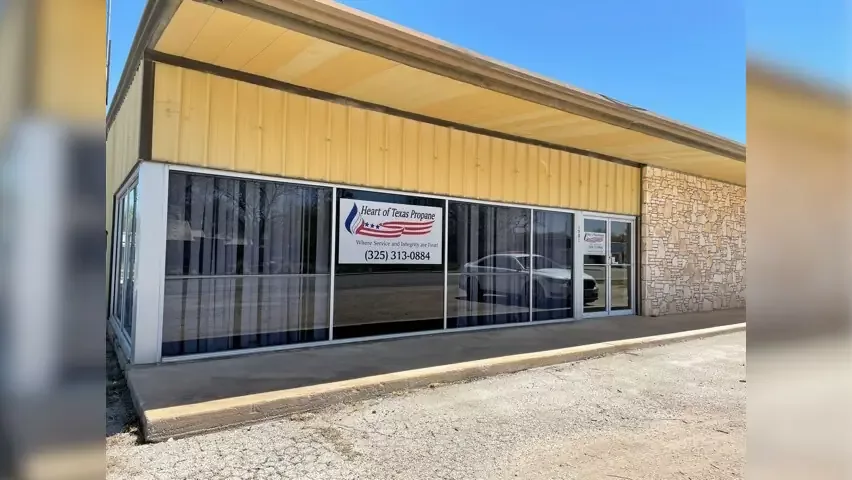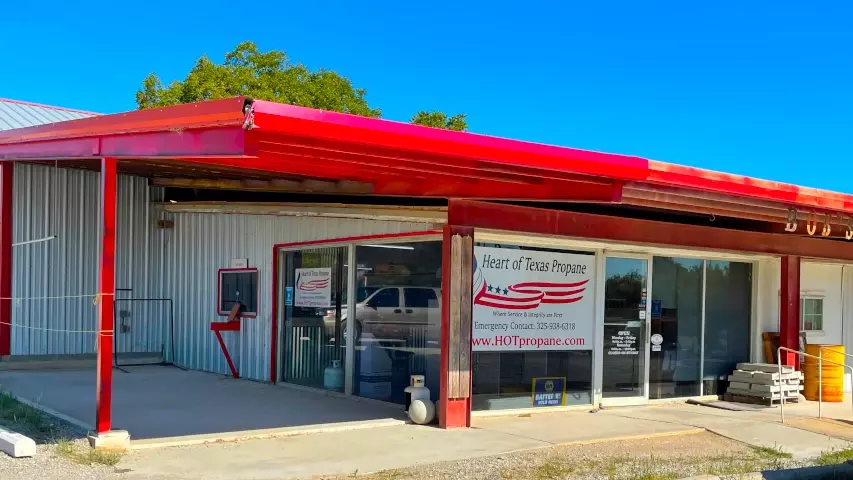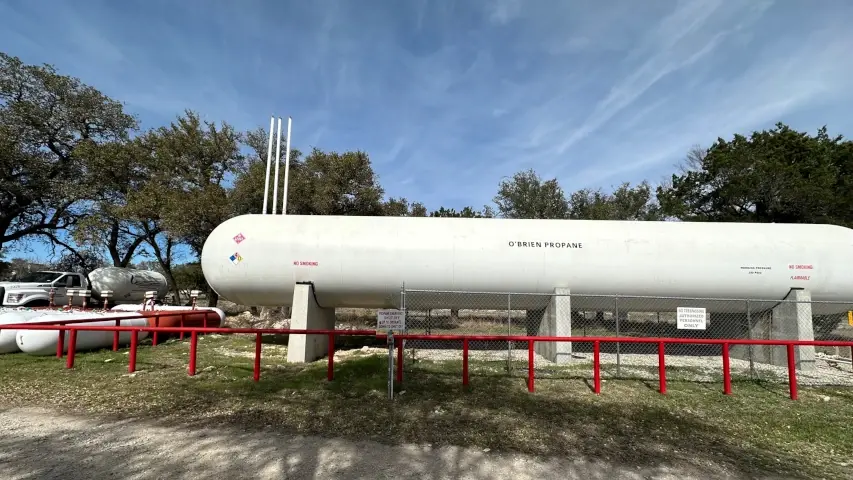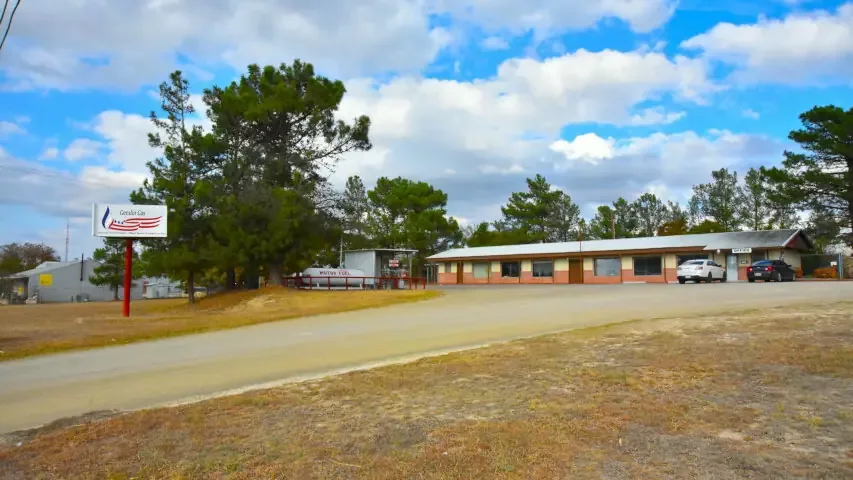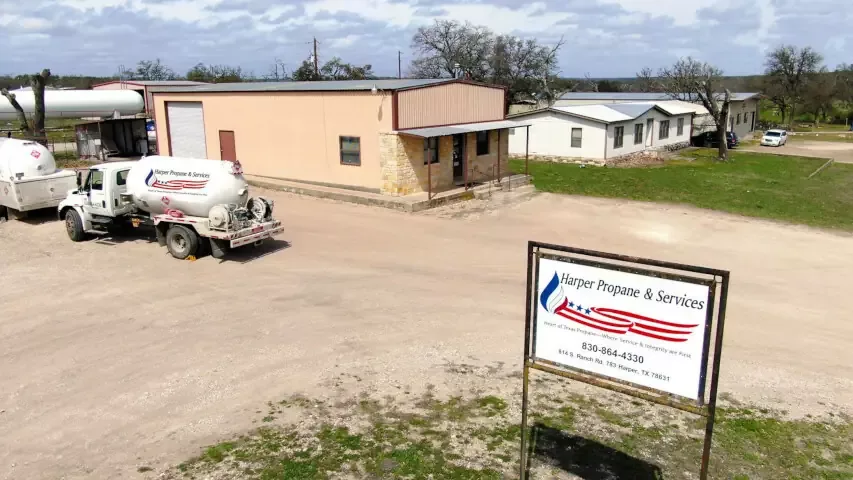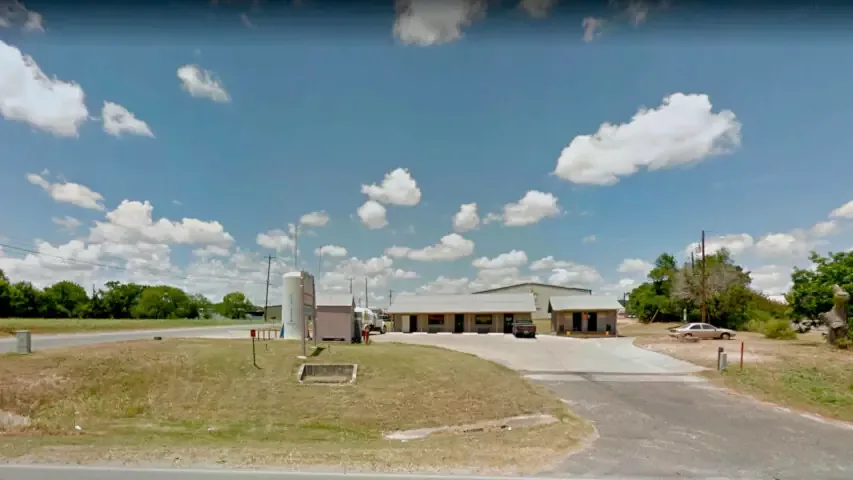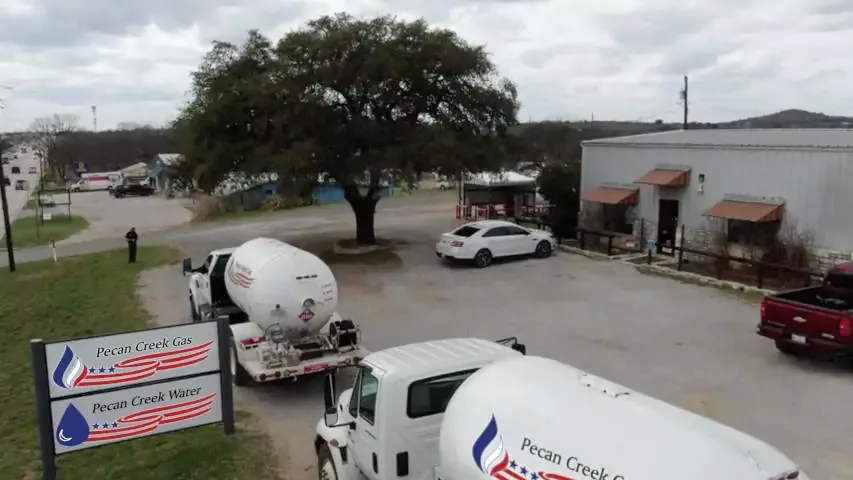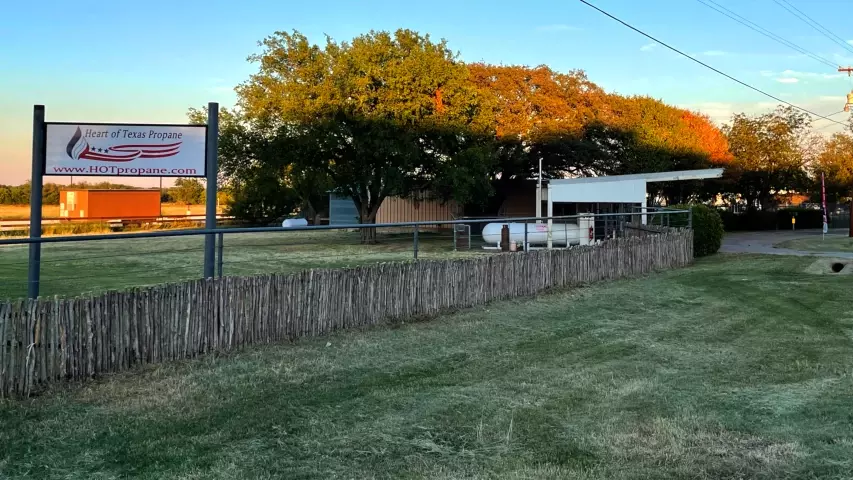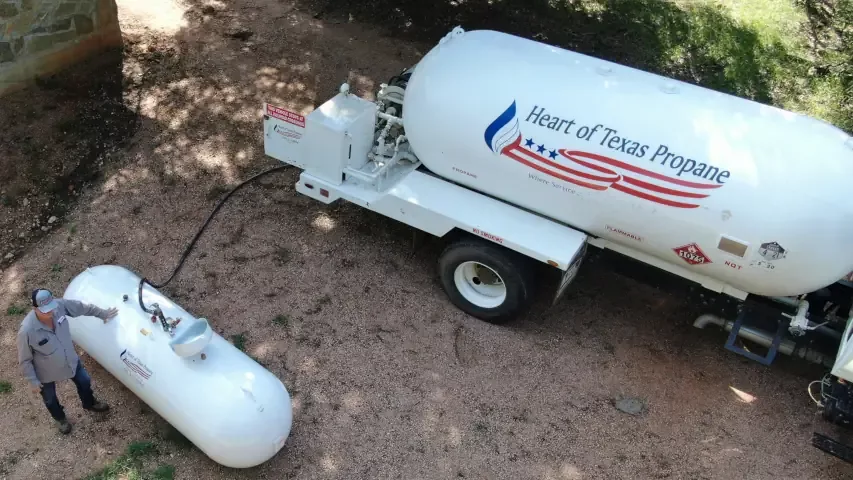Propane Heating vs Electricity & Natural Gas
Why Propane is the Smarter Choice for Home and Business Heating in the Texas Hill Country
The Texas Hill Country is a beautiful place to live and work, but it can get pretty chilly in the winter. That's why it's important to have a reliable and affordable way to heat your home or business.
Propane is a great option for heating in the Texas Hill Country. It's efficient, reliable, and affordable. In fact, propane is often the most affordable choice for heating in the region.
Here are a few reasons why propane is the smarter choice for home and business heating in the Texas Hill Country.
Propane is More Efficient Than Electric Heat Pumps and Natural Gas Furnaces
Propane is more efficient than electric heat pumps and natural gas furnaces because it produces more heat per unit of energy. In other words, you can heat your home or business with less propane than you would electricity or natural gas.
There are a few reasons for this. First, propane is a denser fuel than electricity or natural gas. This means that it contains more energy per unit of volume. Second, propane furnaces are very efficient at converting fuel into heat. Most propane furnaces have an efficiency rating of over 90%, which means that they convert more than 90% of the fuel's energy into heat.
Electric heat pumps are less efficient than propane furnaces because they have to work harder to heat your home in cold weather. Electric heat pumps work by transferring heat from the outside air to the inside of your home. However, when the outside temperature is very cold, there is less heat in the outside air to transfer. This means that electric heat pumps have to work harder to heat your home, which makes them less efficient.
Natural gas furnaces are also less efficient than propane furnaces. This is because natural gas furnaces burn the fuel to produce heat. However, the combustion process is not 100% efficient, so some of the fuel's energy is lost. Propane furnaces, on the other hand, convert the fuel into heat without combustion, so there is less energy loss.
Here is a table that compares the efficiency of propane furnaces, electric heat pumps, and natural gas furnaces:
| Fuel | Efficiency Rating |
|---|---|
| Propane | 90-95% |
| Electric heat pump | 70-80% |
| Natural gas | 80-85% |
As you can see, propane furnaces are the most efficient type of heating system, followed by natural gas furnaces and electric heat pumps.
Propane Prices Are More Stable Than Electricity and Natural Gas Prices
- Propane is a stored fuel. This means that propane is not subject to the same fluctuations as electricity and natural gas prices, which are affected by supply and demand. For example, if there is a sudden increase in demand for electricity, electricity prices can spike. However, propane prices are not affected by short-term fluctuations in demand because propane is stored in tanks on your property.
- Propane is a global commodity. Propane is produced and consumed all over the world. This helps to stabilize prices because it means that there is always a supply of propane available, even if there is a shortage in one region.
- Propane is not regulated by the government. Electricity and natural gas are regulated by the government, which can sometimes lead to price spikes. For example, the government may regulate the price of electricity to protect consumers. However, this can sometimes lead to price spikes if there is a sudden increase in the cost of generating electricity. Propane, on the other hand, is not regulated by the government, which means that propane prices are less likely to be affected by government intervention.
Propane Furnaces Last Longer Than Electric Heat Pumps and Natural Gas Furnaces
- Propane is a cleaner-burning fuel. Propane produces fewer emissions than other fossil fuels, such as oil and coal. This means that propane furnaces have less wear and tear on their components, which helps them to last longer. For example, the soot and other pollutants produced by oil and coal furnaces can build up on the heat exchanger, which can reduce its efficiency and shorten its lifespan. Propane furnaces, on the other hand, produce fewer pollutants, so the heat exchanger is less likely to become clogged, which helps it to last longer.
- Propane furnaces are less complex. Propane furnaces have fewer moving parts than electric heat pumps and natural gas furnaces. This makes them less likely to break down, which helps them to last longer. For example, electric heat pumps have a compressor, which is a moving part that can be prone to failure. Natural gas furnaces also have a number of moving parts, such as the blower fan and the gas valve. Propane furnaces, on the other hand, have fewer moving parts, which makes them less likely to break down.
- Propane furnaces are built to last. Propane furnace manufacturers use high-quality materials and construction methods, which helps their furnaces to last longer. For example, many propane furnaces have a heat exchanger made of stainless steel, which is a very durable material. Propane furnaces also have a number of other features that help them to last longer, such as corrosion-resistant components and a self-cleaning system.
There Are Government Incentives Available for Switching to Propane Heating
There are a number of government incentives available for switching to propane heating in Texas. These incentives can help to make propane heating more affordable for homeowners and businesses.
Here are a few examples of government incentives available for propane heating in Texas:
- Federal tax credit: The federal government offers a tax credit of up to $300 for homeowners who install a new propane furnace.
- State rebates: Many states offer rebates for homeowners and businesses who switch to propane heating. For example, the Texas Propane Gas Association offers a rebate of up to $300 for homeowners who install a new propane furnace.
- Local rebates: Many local governments also offer rebates for propane heating. For example, the City of Austin offers a rebate of up to $200 for homeowners who install a new propane water heater.
Here are a few additional tips for saving money on your propane heating costs:
- Get regular maintenance on your propane furnace. A well-maintained furnace will operate more efficiently and last longer.
- Insulate your home. Insulation helps to keep the heat in your home, which can reduce your heating costs.
- Seal any air leaks in your home. Air leaks can allow heat to escape from your home, which can also increase your heating costs.
- Set your thermostat to a comfortable temperature. Every degree you lower your thermostat can save you 1-2% on your heating costs.
Here Are Some Additional Thoughts on Why Propane Heating is the Smarter Choice In The Texas Hill Country
- Propane is your friend in a power outage. When the power goes out, your propane furnace will keep you warm and cozy. No worries about freezing in the dark!
- Propane is good for the environment. It produces fewer emissions than other fossil fuels, so you can feel good about using it.
- Propane is versatile. You can use it for heating your home or business, cooking, and even running a generator. That's pretty handy!
- Propane is affordable. It's often less expensive than other heating fuels, so you can save money on your energy bills.
If you're looking for a heating system that is efficient, reliable, affordable, and environmentally friendly, propane heating is the way to go.
Check out our Propane Tank Installation Services
We offer both in ground and above ground installations.
More Fuel for Thought Blog Posts
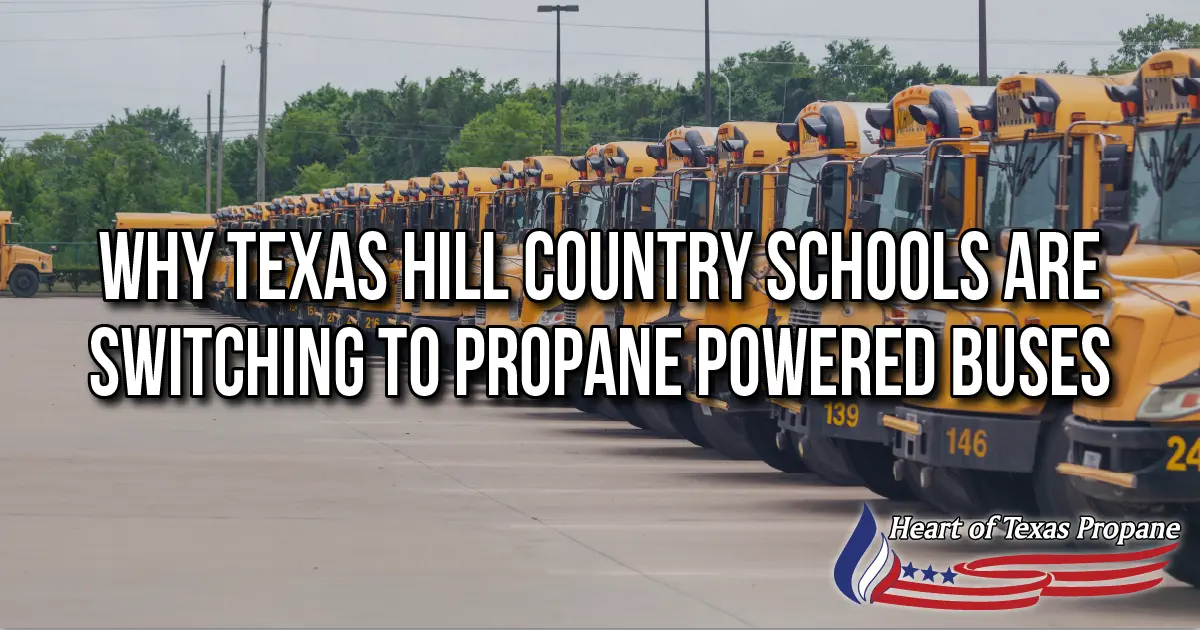
Schools Switching to Propane School Buses
Propane school buses save Texas Hill Country districts money, cut maintenance costs, and qualify for grants—making them a smart, budget-friendly choice.
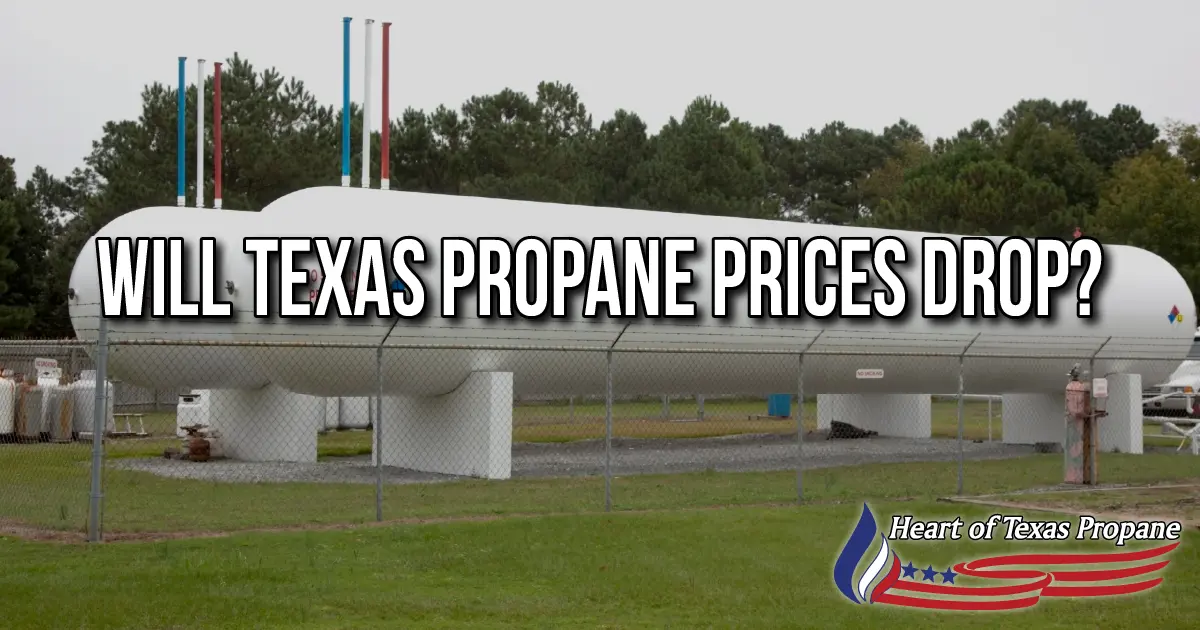
Will Texas Propane Prices Drop?
Texas propane supply is stronger than ever. Here’s what that means for prices and what Hill Country customers can do to save.

Hidden Fees in Propane Delivery
When it comes to keeping your home, ranch, or business running on propane, the price you see advertised isn’t always the price you pay.
